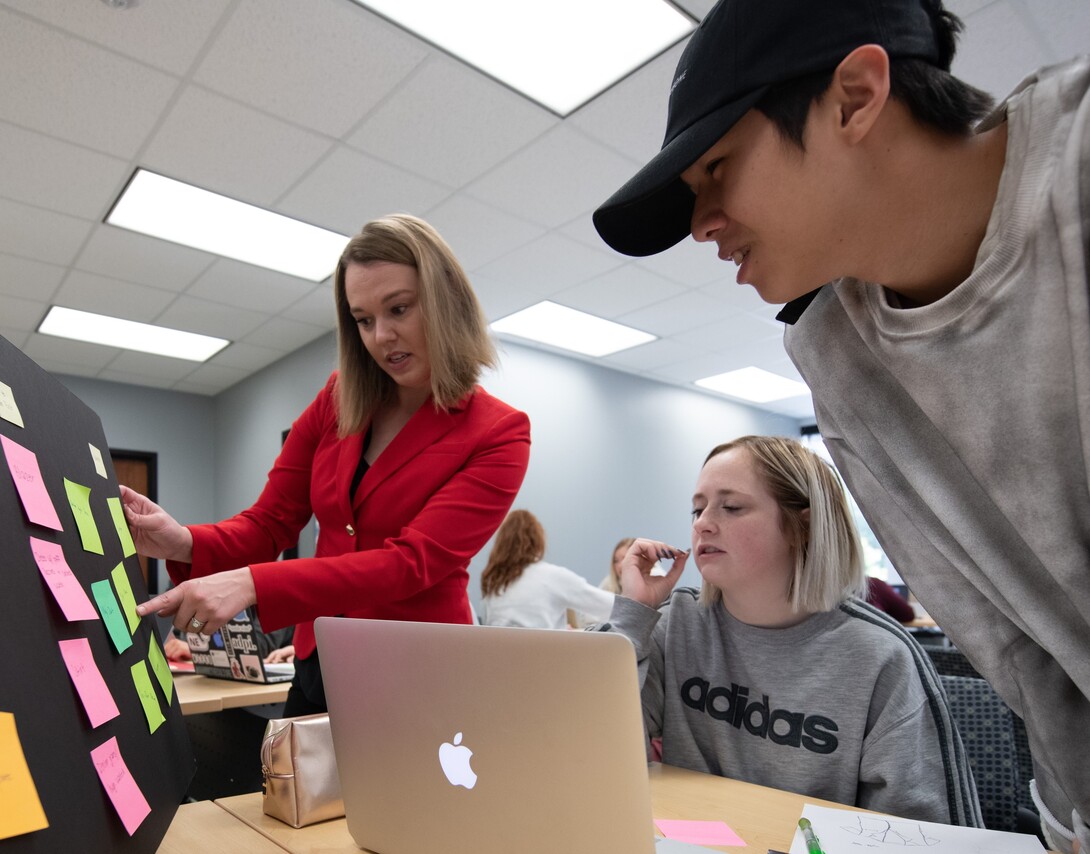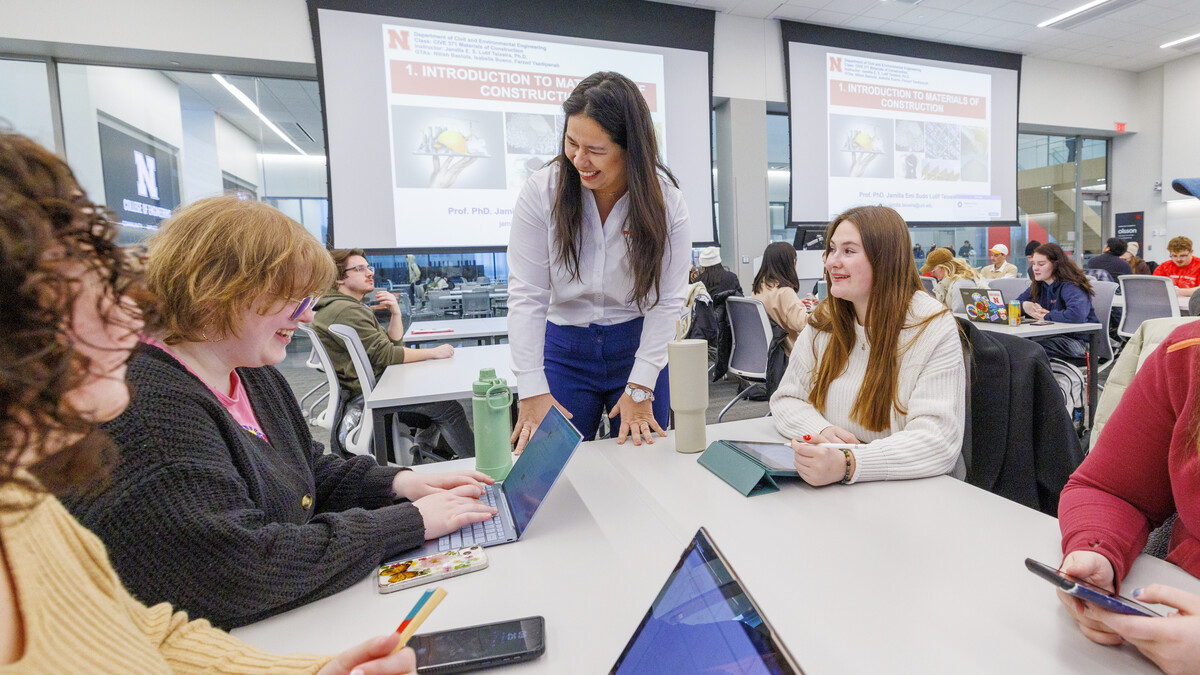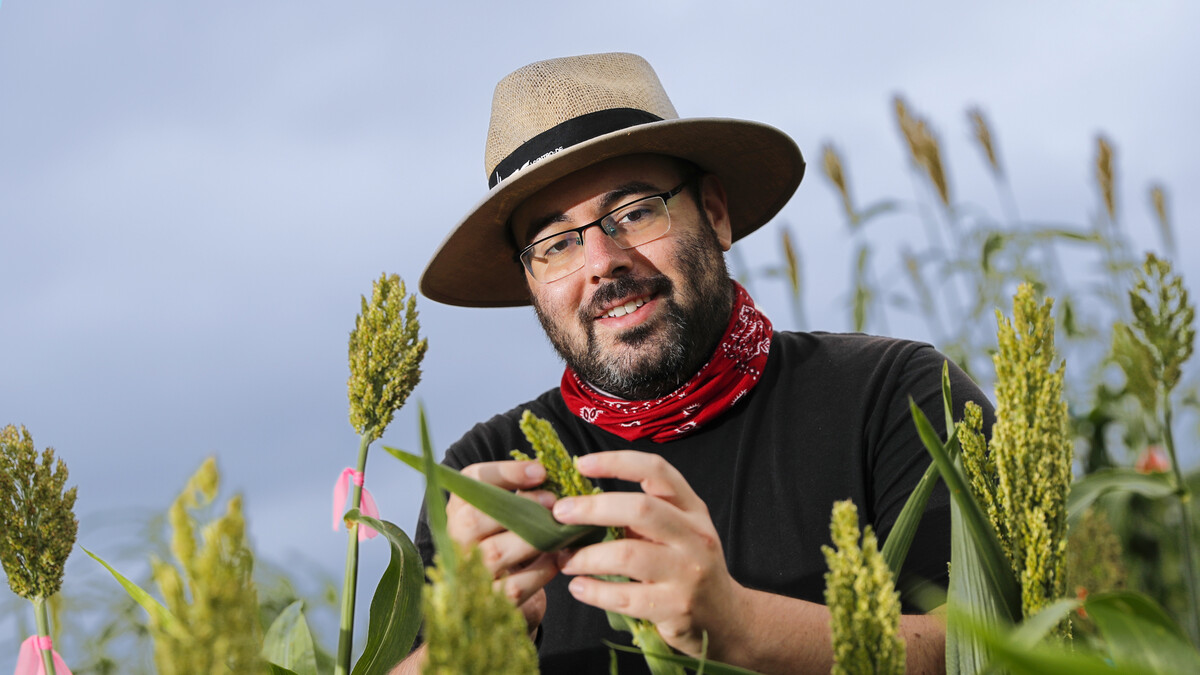
Sustainability curriculum development workshops guide University of Nebraska–Lincoln professors in incorporating sustainability concepts into their courses, and the work is now garnering awards.
The workshops, run by the Chancellor’s Environment, Sustainability and Resilience Commission, help professors develop sustainability-related curriculum through the lens of their respective fields. The workshops contribute to university goals for improved sustainability and promote a sustainable future by educating future leaders, exemplified by Jennifer Johnson Jorgensen’s award-winning module.
“Our students are the next leaders of the textiles, apparel and retail industries,” said Johnson Jorgensen, assistant professor in the Department of Textiles, Merchandising and Fashion Design. “They are the ones who are going to be guiding their companies toward a more sustainable future.”
The United Nations Alliance for Sustainable Fashion states that the clothing and textile industry is responsible for an estimated 2-8% of the world’s greenhouse gas emissions.
“I personally feel that if we are going to make a dent in sustainability and really change the course that we’re on, the textiles, apparel and retail industries have to take responsibility for their large impact,” Johnson Jorgensen said.
She believes that industry change can be accelerated by her students and incorporates sustainability into many of her courses. When she learned about the sustainability curriculum development workshops, she saw the opportunity to develop a robust, peer-reviewed module for her International Textile and Apparel Sourcing course.
“We talked about sustainability quite a bit in that course, but I felt like there needed to be a real focus on a project that helped students think through what they would propose to a retail company if they had the opportunity,” Johnson Jorgensen said.
In the seven-week Sustainability in Sourcing and Retail module, Johnson Jorgensen’s students researched a problem, and proposed and presented a solution for a company they’d like to work for. The project prepared students for real-life situations in which they may present similar ideas in a company’s boardroom. The module also included data analysis, critical thinking and studying current sustainability initiatives in companies.
The curriculum development workshops gave Johnson Jorgensen feedback, support and collaboration from faculty members of many disciplines.
“I loved being a part of that group because I did get great feedback, and I felt like hearing everybody else’s perspective on what they were doing in their courses was really beneficial to help me figure out exactly what I was going to do within the sustainability module,” she said.
After a double-blind peer review process, Johnson Jorgensen’s module earned the Nancy Rutherford Teaching Innovation Award from the International Textile and Apparel Association, which is one of the most respected organizations in her field.
Johnson Jorgensen will continue to incorporate sustainability into her courses and will adapt her lessons as industry standards evolve. Her experience is a good example of the value that the sustainability curriculum development workshops provide to participants.
The primary goal for the workshops is for professors to bring together ideas and concepts on sustainability and resilience to develop an educational module or unit to incorporate into one of their courses.
“Sustainability education is really about using our resources more efficiently or effectively so that there’s something for the future and we reduce our impact on our current environment,” said David Gosselin, who developed and leads the workshops.
The workshops cover a variety of concepts including professional competencies, defining sustainability from a discipline’s standpoint, assessment, peer review, experiential learning and analyzing real-world data.
“I think the workshops are pretty effective, and it has certainly been demonstrated by Jennifer Johnson Jorgensen’s success,” Gosselin said.
Instructors who choose to partake in the workshops are providing their students with the opportunity to increase their knowledge of the concept of sustainability in the context of their discipline.

As students are the future leaders, integrating sustainability into curricula is important “for our own long-term survival,” Gosselin said.
Twelve instructors, including Johnson Jorgensen and representatives from engineering, agronomy and education, took part in the inaugural sustainability curriculum development workshops during the 2019-20 academic year. Another 10 attended a condensed session in spring 2021. The commission hopes to continue the workshops annually during the spring semester with groups of 12-15 educators, laying the foundation for a more sustainable future and contributing to improving the university’s STARS rating, a program run by the Association for the Advancement of Sustainability in Higher Education.
“Higher education produces leaders, and we need leaders who are familiar with these sustainability practices. It’s the key to the future,” Gosselin said.
The sustainability curriculum development workshops are part of many initiatives led by Gosselin, co-chair of the Chancellor’s Environment, Sustainability and Resilience Commission. He is also the director of the Environmental Studies program and the UNL Sustainability Initiative.
The sustainability commission, established in 2008, re-commissioned in 2019 and formulated the university’s Environment, Sustainability and Resilience Master Plan. The plan outlines sustainability goals for the university, which contribute to pursuing one of the university’s Grand Challenges, which is Climate Resilience.
From the top-down organizational goals to bottom-up individual efforts, these and other initiatives contribute to building a campus that upholds sustainability education and action for a brighter future.
“It’s all about developing a community of people who are involved in improving the culture of sustainability and resilience at UNL,” Gosselin said.









